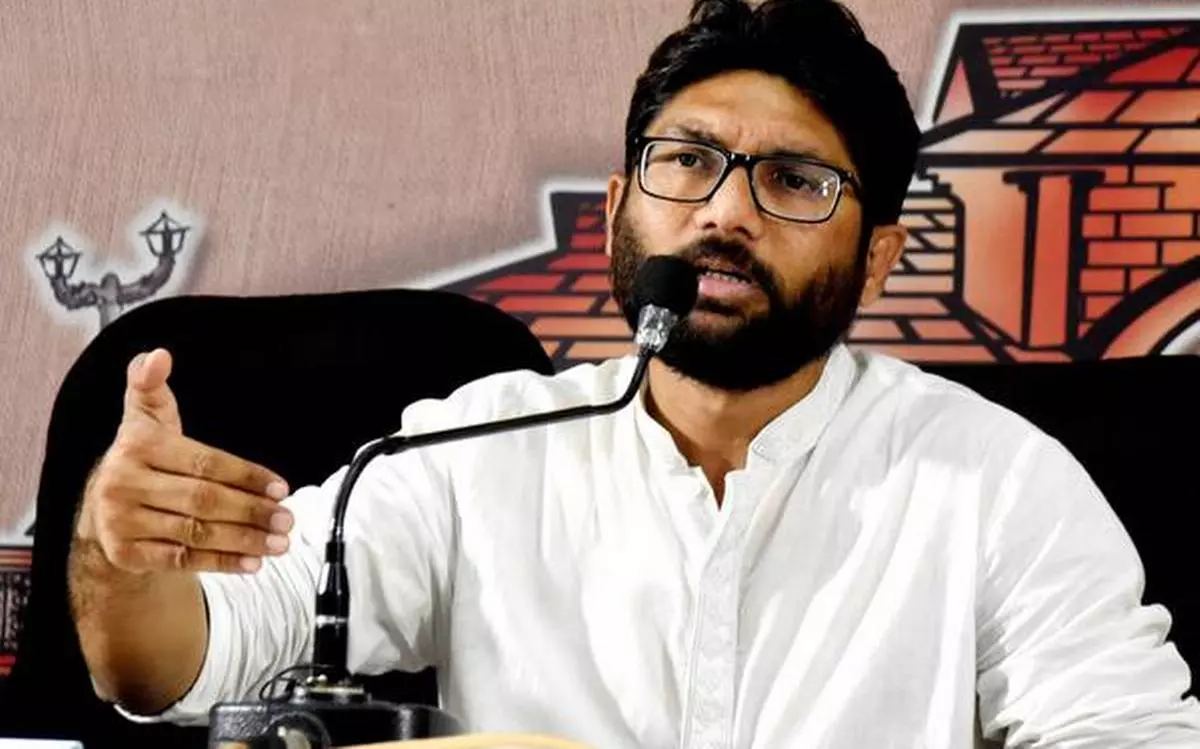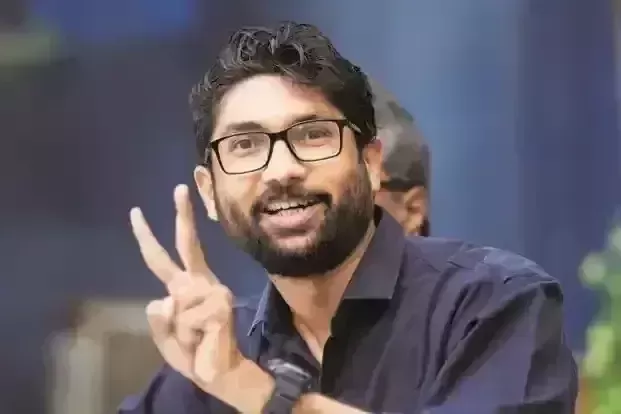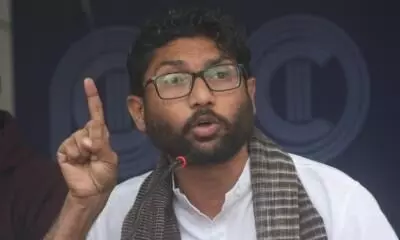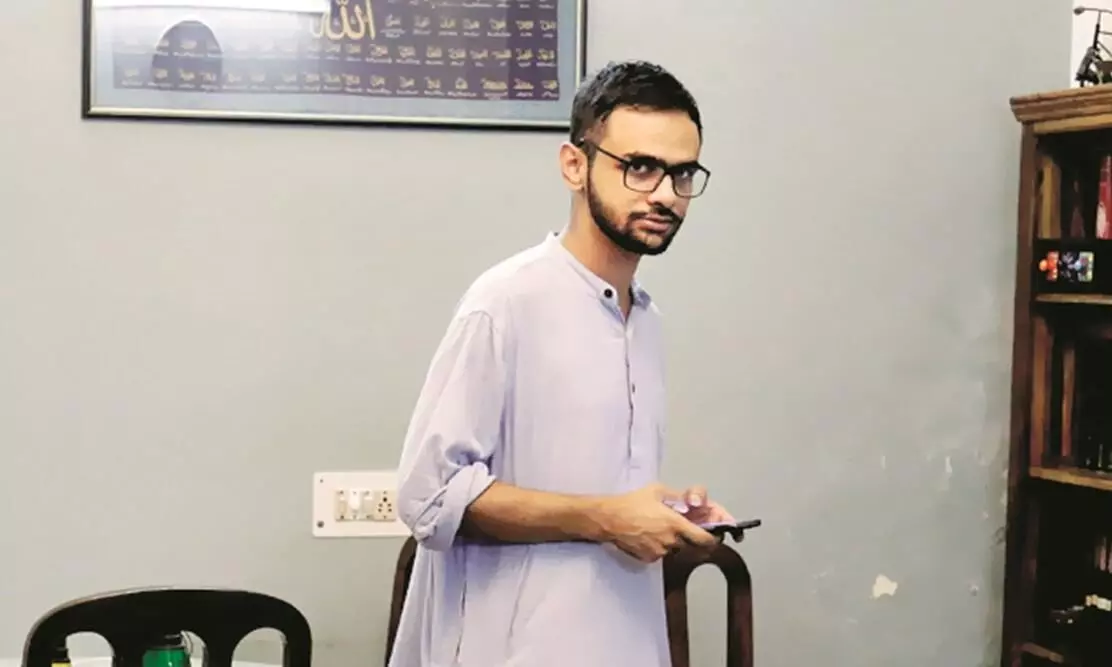
The national god, Godse of new India
text_fields"Prime Minister Narendra Modi, who considers Godse as his god, is going on a Gujarat tour from April 20. I appeal to him that he should appeal for calm in Himmat Nagar, Khambat and Veraval where communal violence broke out. Can we at least hope for this much from the maker of the grand temple." This tweet by activist and Congress-supported independent member of Gujarat assembly, Jignesh Mevani should be quite acceptable and valid in the country's political discourse it has maintained so far. Our predecessors have raised still harsher and more mercilessl, biting criticism against the ruling establishment. And the critics of the sangh parivar have time and again told the people the fact about the sangh parivar's ill-concealed adoration of Godse even in the contemporary milieu pervaded by fear. But what Jignesh Mevani's arrests one after another tells us is that mentioning such historical facts related to the sangh parivar is turning into a serious crime in the new India being built by the current regime. It is all too clear to any one with a quick reading of his statement that there is nothing that hurts religious sentiment or disturbs social peace. But then the actual charge sheet against him would shock any one. It reinforces the notion that free expression of opinion is banned from now on.
The Assam police has slapped a series of serious charges on Mevani including criminal conspiracy (Section 120B), assertion prejudicial to national integration (153-B) deliberate and malicious acts, intended to outrage religious feelings of any class by insulting its religion or religious beliefs (295-A), insult with intent to provoke breach of peace (IPC Sec 504), create fear by disturbing public order in the state (501-1B), and provisions of IT act. In the new India, it would be naïve to try to rationalise why a tweet made in Gujarat should warrant a case being registered in a remote village of Kokrajar in far-off Assam and the accused should be brought there overnight and arrested there. And asking questions like how that constitutes hurting religious sentiments, disturbing public order or insulting the country would also be seen as tantamount to ridiculing the new India and its legal machinery. In the new India, is it to be taken for granted that the national god is Godse and the national religion is Hindu Mahasabha and RSS? And is that the reason why anything that criticises them becomes a grave crime attracting preventive detention because they are unacceptable and unpalatable to the ruling establishment?
In another case of preventive detention of Umar Khalid, who was put in jail under sedition charges for leading the anti-citizenship protests, during the hearing of his bail plea on April 22 and 27, the observations made by the Delhi Court Justice Siddharth Mridul are a direct reflection of the anxieties caused by sangh criticisms in the court room. The speech of Umar Khalid in Amaravati on February 17, 2020 ran thus: "When we were fighting the white colonisers, and when we were fighting against them, the ancestors of the present day rulers of India – the RSS and the Hindu Mahasabha – were acting as agents of the British. Today, they are asking us for the records of our ancestors. It is important to ask them about the record of their ancestors. When the people of India were giving sacrifices –from Jallianwala Bagh massacre to many other incidents when the British shot Indians down, imprisoned so many who dreamt of India's freedom, the ancestors of the present day rulers were acting as agents of the British". The court expressed strong exception to these words of Umar. The question of the court whether these won't attract Sections 153A and 153 B of Indian Penal Code do not offer any comfort to those who believe in democracy and the legal system. Equally disturbing are the court's remarks that, criticism may be fine within the four walls of democracy, but this language is not acceptable in our country. When the police and the courts deem criticisms of the RSS and the Hindu Mahasabha as criminal acts by giving it a colour of communal discord, its meaning is simple: the country's situation is such that any citizen can easily be arrested by the police of another state in the name of statements and speeches that normally do not warrant arrest. The arrest of Jignesh Mevani and the court's remarks regarding Umar Khalid's bail petition seem to teach the citizen a dictum that he should either wholeheartedly support the government, or keep his mouth shut ,as the only means to survive.

























